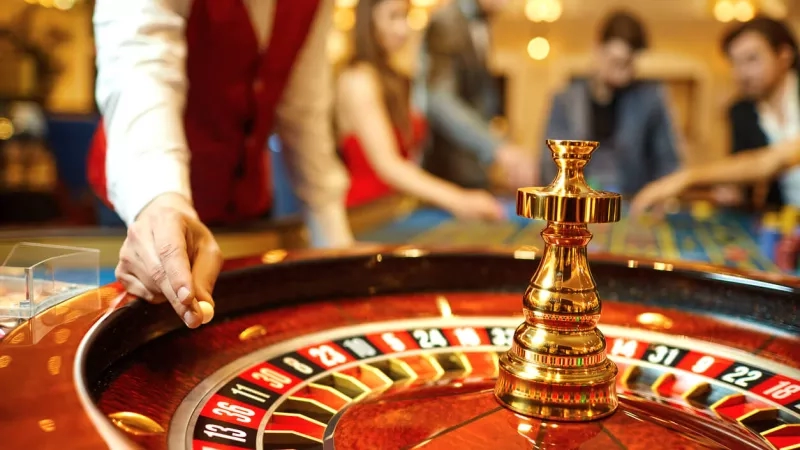When Loss Feels Like a Win in Disguise
For many players at Needforspeed casino, there’s a moment after a loss that feels surprisingly light. It’s not joy, but it’s not despair either. Instead, there’s a sense of release – as though the pressure to keep winning has evaporated. This is the paradox of cleansing loss: the moment when defeat in the game scrubs away the heavy weight of expectations, plans, and emotional buildup.
While conventional wisdom says winning should be the ultimate reward, psychology and experience reveal that loss can sometimes provide a different – and in some cases, more powerful – kind of emotional payoff.
The Psychology of Letting Go
Losing can feel cleansing because it forces a player to relinquish control.
- No more strategizing.
- No more imagining what to do with winnings.
- The narrative of the game reaches a natural pause.
This mental “reset” is similar to decluttering a crowded desk – suddenly, there’s space for new thoughts.
Loss as an Emotional Purge
When a player has been riding a streak of anticipation and adrenaline:
- Each spin or hand builds tension.
- Every small win increases the pressure to keep going.
- The possibility of losing becomes a shadow.
A significant loss acts like a sudden thunderstorm – releasing pent-up emotional energy all at once.
The End of the Chase
In gambling, the “chase” is the pursuit of a win, often after a series of losses. Ironically:
- When the chase ends with a clear, undeniable loss, some players feel relief.
- The compulsive loop breaks, if only temporarily.
- There’s a clarity in knowing there’s nothing more to fight for tonight.
The Illusion of Debt Settled
Some players describe losing as if they’ve “paid their dues” to the casino.
This thinking turns the loss into:
- A transaction rather than a failure.
- A way of clearing a psychological balance sheet.
- A justification to walk away without guilt.
Loss and the Comfort of Finality
Uncertainty can be exhausting.
- While winning prolongs the game and adds more variables, losing offers finality.
- This finality can be emotionally grounding – the player no longer has to live in the in-between.
Loss as a Form of Self-Punishment
For players burdened by guilt or self-disappointment unrelated to the game:
- Losing serves as a symbolic punishment.
- The act feels deserved, and thus cleanses a sense of moral or emotional imbalance.
- The casino becomes a confessional booth, and the loss becomes penance.
Ritualized Losing – A Hidden Behavior
Some gamblers unconsciously:
- Increase bets toward the end of the night, subconsciously ensuring a loss.
- Choose riskier games when tired, pushing toward closure.
- See this final big loss as a “burn-off” of leftover tension.
The Physical Relief After a Loss
Physiological reactions to a final loss can include:
- A drop in heart rate.
- Release of muscle tension in the shoulders and jaw.
- Deep breathing that wasn’t possible during play.
This physical decompression often mirrors the mental one.
The Contrast Effect – Why Loss Feels So Different
In psychology, the contrast effect makes post-loss sensations sharper:
- The relief is heightened by the stress that preceded it.
- The quiet after leaving the table or logging out feels more profound.
Storytelling the Loss
Players often reframe their loss into a story:
- “It wasn’t my night.”
- “I got it out of my system.”
- “At least I don’t have to worry about what to do with the winnings.”
This reframing transforms the loss into a meaningful, almost poetic, ending.
When Loss Is a Gateway to Self-Control
Some experienced players use a controlled loss as a planned exit strategy:
- They decide beforehand how much they’re willing to lose.
- When that amount is gone, they stop – feeling not defeated, but in control.
- This turns the loss into a strategic act.
The Shared Experience of Losing
In both online and land-based casinos, there’s camaraderie in shared loss:
- Live chats light up with sympathetic messages after big downswings.
- Other players offer “better luck next time” solidarity.
- This shared experience normalizes loss and can make it feel less personal.
The Casino as a Space for Emotional Catharsis
For some, the casino is not just about money, but emotional processing:
- Losses become symbolic endings to personal chapters.
- The environment allows expression – sighs, laughter, even relief – that players may suppress elsewhere.
Responsible Reflection After Cleansing Loss
To ensure the “cleansing” effect doesn’t lead to dangerous patterns:
- Set limits before starting.
- Recognize when the relief is genuine and when it’s masking disappointment.
- Avoid using loss as the only form of emotional release.
Conclusion – The Strange Peace of Defeat
In the paradoxical world of gambling, loss can sometimes feel like a release valve. At casino, this sensation is often reported as more satisfying than the stress of prolonged winning streaks. Understanding why loss can feel cleansing doesn’t mean glorifying it – but it does mean recognizing that in the theater of human emotions, even defeat has its moments of grace.
